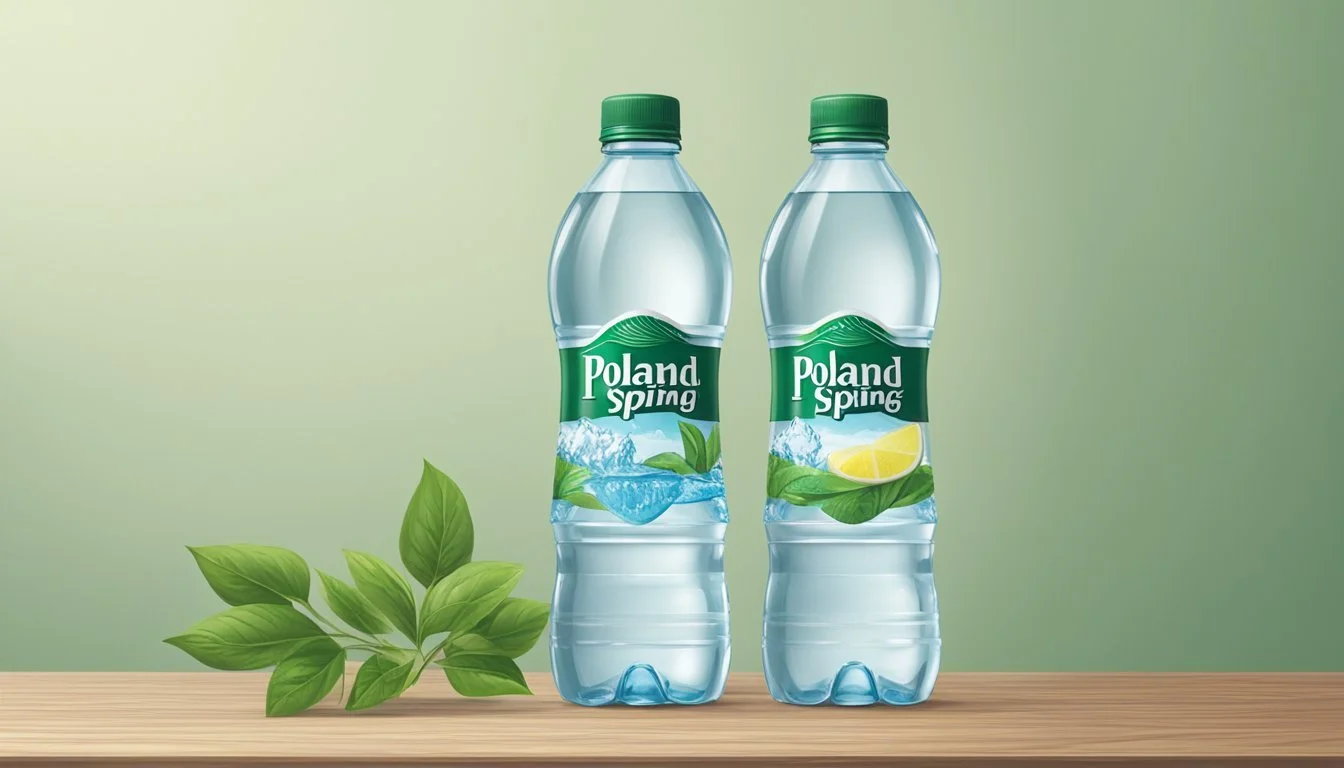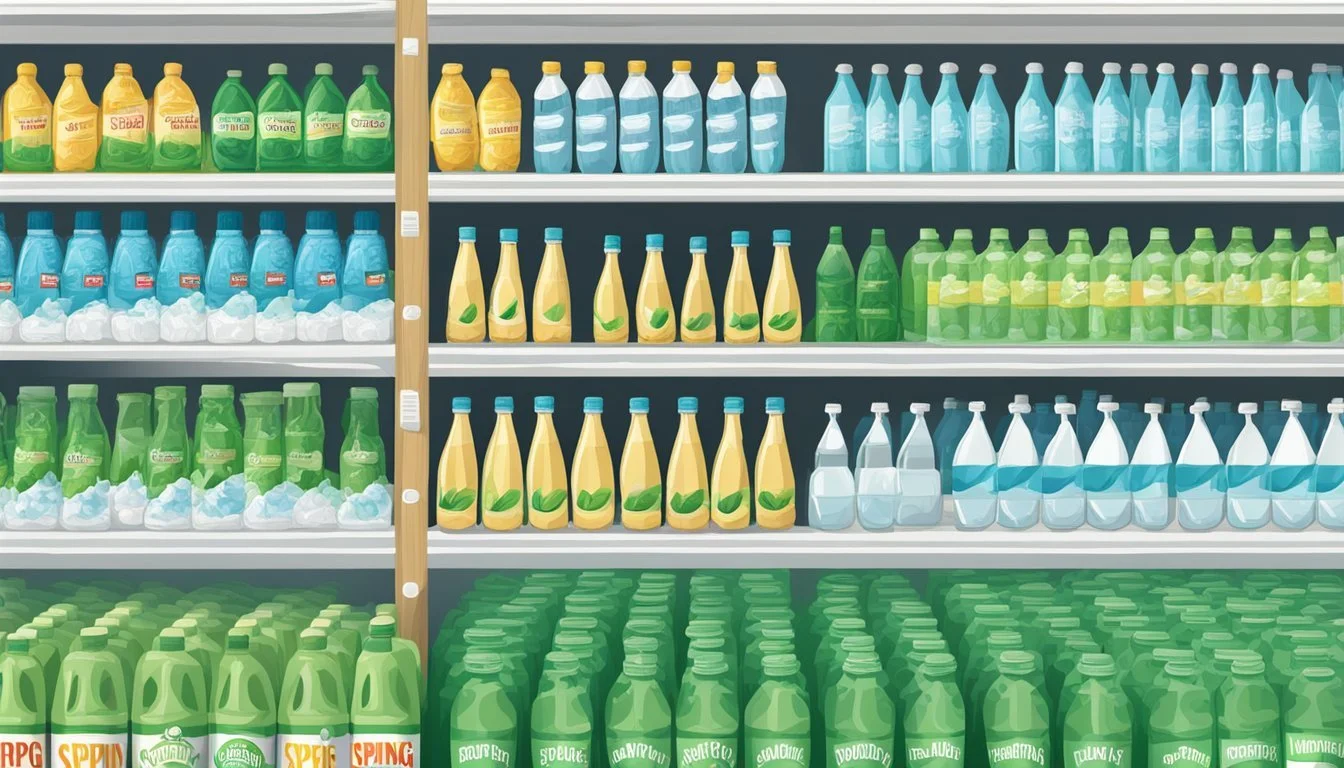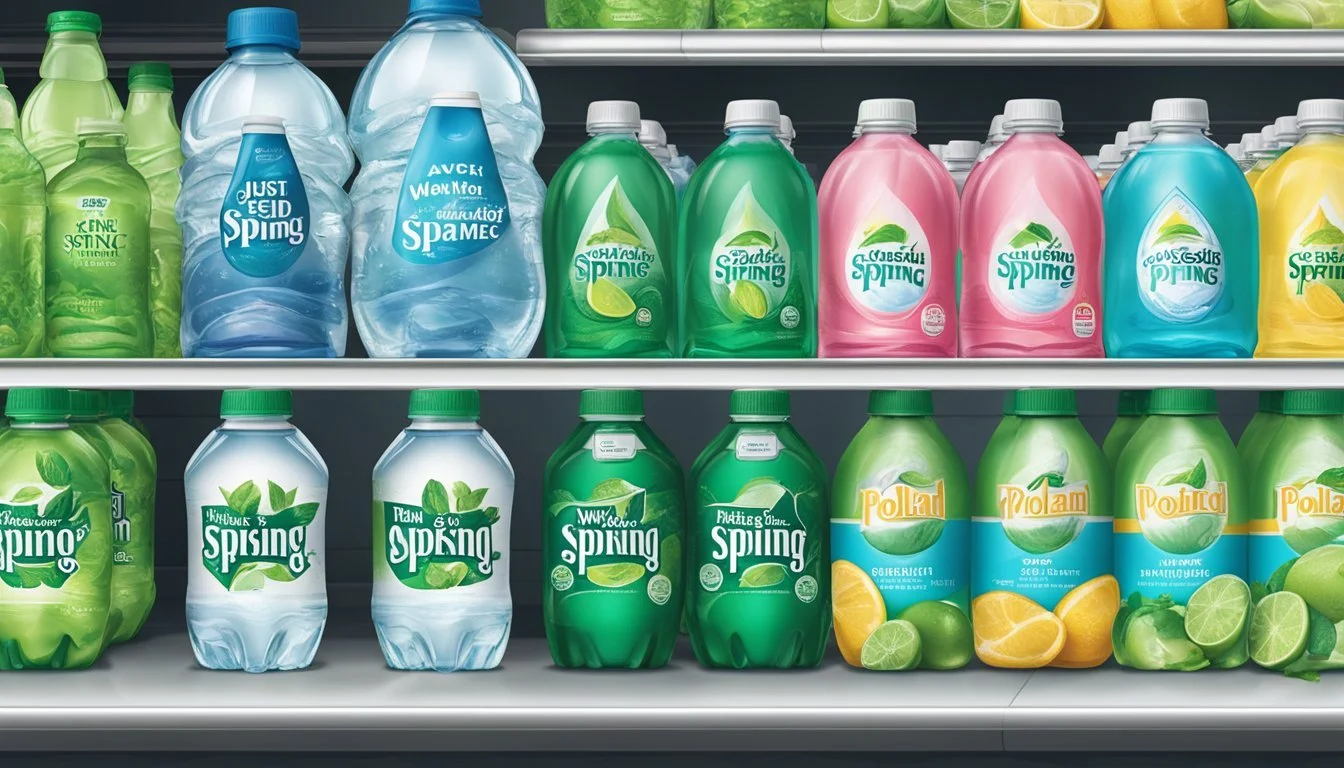Just Water vs. Poland Spring
A Comprehensive Comparison of Bottled Water Brands
When it comes to choosing bottled water, consumers have myriad options, each with its own selling points and purported benefits. Just Water and Poland Spring stand out as two prominent brands with distinct backgrounds and water sourcing philosophies. Just Water prides itself on its eco-friendly packaging and claims of pure, spring-sourced water. Poland Spring, on the other hand, with its long history, claims to deliver natural spring water sourced from Maine.
Evaluating these two brands involves looking beyond just taste; it encompasses factors like the source of the water, the purity of the contents, the environmental impact of the packaging, and the overall brand ethics. Just Water emphasizes its commitment to sustainability with a carton composed predominantly of paper from responsibly managed forests, a cap made from sugarcane, and the use of spring water drawn from the Adirondack Mountains. Poland Spring asserts the authenticity of its product, listing several spring sources throughout Maine and emphasizing natural filtration.
The choice between Just Water and Poland Spring is not just a matter of personal preference, but a reflection of a consumer's values and priorities when it comes to the quality, taste, and ecological footprint of the bottled water they drink. As the market for bottled water becomes increasingly competitive, transparency and genuine practices play pivotal roles in earning consumer trust and preference.
Overview of Bottled Water Brands
In the realm of bottled water, two notable brands often come up for comparison: Just Water and Poland Spring. Each carries its unique characteristics and sources, providing consumers with options that range from sustainability efforts to natural mineral content.
Just Water Profile
Just Water is a brand that stakes its reputation on sustainability and environmental responsibility. Their water is packaged in a paper-based bottle with a cap made from sugarcane. The water itself is sourced from Glens Falls, New York, where the company has a partnership with the local community. They offer spring water that is naturally high in electrolytes and has an alkaline pH. The company highlights their efforts in reducing plastic use and carbon footprint.
Poland Spring Profile
Poland Spring is a name synonymous with natural spring water. Originating from Maine, Poland Spring water is sourced from multiple spring sites across the state, including the eponymous Poland Spring. They stress on their label that their product is 100% natural spring water, which is free from any artificial colors, flavors, sweeteners or additives. Poland Spring has been a staple in the bottled water market for many years, and emphasizes the crisp taste and quality that comes from their carefully selected and maintained springs.
Comparative Analysis
In examining Just Water and Poland Spring, this section will focus on various aspects of each brand, from their sources and processing methods to considerations of taste, health, safety, and environmental impact.
Water Source and Processing
Just Water: Sources its water from natural springs in the Adirondack Mountains of New York, emphasizing sustainable sourcing practices. They utilize a paper-based carton to house the water, which is purified through an 8-step filtration process that includes UV, carbon, and micro filtration.
Poland Spring: Claims its water is sourced from multiple natural springs in Maine, although it has faced scrutiny over the legitimacy of this claim. It employs common filtration and purification processes to ensure safety and quality standards are met.
Taste and Quality Factors
Taste: Just Water prides itself on having a pure, clean taste due to a pH level typically around 8, which can contribute to a crisp mouthfeel. Poland Spring's taste profile is often described as fresh and light, with minimal aftertaste.
Quality: Both brands assert high-quality standards, with Just Water offering a slightly alkaline option that some consumers believe has benefits for acid balance in the body. Poland Spring’s quality is reflected in its widespread consumer acceptance and longstanding market presence.
Health and Hydration
Minerals: Essential minerals like calcium and magnesium are found in both brands, contributing to overall health and hydration qualities. These electrolytes can enhance the ability of water to hydrate the body effectively.
Health Benefits: There's no conclusive evidence that one brand offers more health benefits than the other, as both provide hydration that is foundational to bodily functions. However, Just Water’s higher pH might appeal to those seeking alkaline water for their diet.
Safety and Contaminant Levels
Contaminants: Both brands are compliant with the Environmental Protection Agency (EPA) standards and undergo regular testing for contaminants such as lead, chlorine, PFAS, and heavy metals.
Bottled Water Safety: Just Water's packaging is BPA-free, ensuring there's no leaching of plastic chemicals into the water. Poland Spring, similarly, maintains a commitment to safety and meets the FDA’s stringent regulations for contaminants and bacteria.
Environmental Considerations
Sustainability: Just Water touts a higher environmental conscience with its 82% renewable packaging material and carbon footprint considerations. Poland Spring, owned by Nestlé, participates in recycling initiatives and has made commitments to reduce plastic waste.
Impact: The environmental impact of bottled water is an important consideration; transportation, production, and disposal of packaging all contribute to a brand’s carbon footprint. Just Water’s business model includes reforestation efforts and a focus on reduced resource usage, positioning them as a more environmentally responsible choice compared to typical bottled water companies.
Packaging and Branding
When comparing Just Water and Poland Spring, their approach to packaging and branding are telltale signs of their market positioning and commitment to sustainability, which are critical factors for eco-conscious consumers.
Bottle Design and Materials
Just Water's commitment to reducing plastic waste is evident in its packaging design. The company uses a paper-based carton that is reported to be made from 82% renewable resources. The carton is composed mainly of responsibly sourced paper and includes a plant-based plastic cap. Just Water's bottles are BPA-free and fully recyclable, contributing to a lower carbon footprint compared to conventional plastic bottles.
On the other hand, Poland Spring has traditionally used plastic bottles, which have drawn concerns about plastic waste. However, the brand has made strides towards sustainability, announcing initiatives to incorporate 100% recycled plastic in their bottles. Poland Spring's bottles are also BPA-free, and the company has made efforts to support recycling programs to reduce overall plastic waste in the environment.
Labeling and Brand Image
The labeling of Just Water features a clean and minimalistic design which underscores the brand's message of environmental responsibility and label accuracy. The brand leverages its clear marketing message to enhance brand recognition among a demographic that favors sustainable products.
Poland Spring's labeling contains information about the origins of the water and its natural purity. However, in the past, the brand faced scrutiny over label accuracy concerning the source of its water, though it has made efforts toward greater transparency. Despite such challenges, Poland Spring has maintained a strong brand recognition in the bottled water market through consistent marketing efforts and widespread availability.
Market Position and Consumer Preferences
Just Water and Poland Spring hold distinct places in the market, with their consumer preferences shaped by factors including sales volume, distribution channels, and brand loyalty, as evidenced by customer satisfaction and reviews.
Sales and Distribution
Just Water, a newer entrant into the bottled water market, takes pride in its eco-friendly packaging and ethical sourcing. It generally targets health-conscious and environmentally-minded consumers, primarily distributed through select retailers and online platforms. Poland Spring commands a broader distribution network, capitalizing on its longstanding presence and widespread recognition. Both brands have a foothold in the United States with notable differences in market penetration and availability.
Just Water: Specialized distribution with a focus on eco-conscious retailers
Poland Spring: Extensive distribution across various retail formats
Customer Reviews and Loyalty
Customer satisfaction plays a pivotal role in the bottled water industry. Just Water's unique selling point of sustainable packaging and natural sourcing often garners positive reviews from environmentally aware customers. In contrast, Poland Spring has a long-established customer base that values tradition and brand familiarity, which can translate into strong brand loyalty. Consumer reviews frequently highlight the taste and purity of the water, as well as packaging convenience.
Just Water:
Customer satisfaction tied to environmental commitment
Reviews often applaud sustainable practices
Poland Spring:
Brand loyalty bolstered through decades of market presence
Reviews reflect trust in the brand's heritage and quality
Regulatory Standards and Legal Issues
In assessing the quality and reliability of bottled water brands such as Just Water and Poland Spring, one must consider their adherence to regulatory frameworks set forth by the Food and Drug Administration (FDA) and their legal history concerning consumer trust and compliance issues.
FDA Regulations and Compliance
The FDA categorizes bottled water under its food regulations to ensure safety and quality standards are met. Poland Spring has historically faced scrutiny over allegations that it mislabeled its products. The FDA maintains definitions for different types of bottled water, such as spring water, which it specifies must be derived from an underground formation and flow naturally to the earth's surface. The accuracy of labels is crucial, as they communicate compliance with such definitions.
Just Water stresses its eco-friendly packaging and spring water sources, aligning its branding with FDA regulations on label accuracy.
Poland Spring, a brand of BlueTriton Brands, has encountered legal challenges questioning whether its product fits the FDA's definition of spring water.
Litigations and Consumer Trust
Litigations have a significant impact on brand trust.
A class-action lawsuit against Poland Spring alleged that their product is not from a spring as defined by the FDA. This legal issue bears consequences for consumer trust, as customers rely on the assurance that labels are accurate.
Meanwhile, Just Water's commitment to transparency seeks to build trust through legal compliance and clear messaging about their sources and procedures.
Legal disputes over compliance with FDA standards speak to the broader context of environmental impact and ethical resource usage—factors increasingly important to consumers.
Conclusion
When considering Just Water versus Poland Spring, the choice depends on individual preferences and values. Just Water is known for its eco-friendly packaging and commitment to sustainability. Its packaging is primarily made from renewable resources, and the company claims to source its water responsibly.
Poland Spring, on the other hand, offers water that is sourced from springs in Maine and is popular for its taste and affordability. It's widely available and the brand utilizes rPET bottles, which are virtually BPA-free and partially made from recycled materials.
Both brands offer distinct benefits:
Just Water:
Environmentally-conscious packaging
Ethically-sourced spring water
Supports conservation efforts
Poland Spring:
Cost-effective choice
Natural mineral content for a fresh taste
Extensive distribution
Consumers interested in environmental impact may lean towards Just Water. Those prioritizing cost and taste might prefer Poland Spring. Both brands have taken steps to ensure quality and offer health benefits such as hydration and better digestion. It is advisable for consumers to read labels and understand the sourcing and processing methods to make an informed choice that aligns with their personal needs and ethical considerations.







